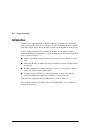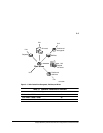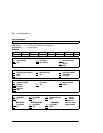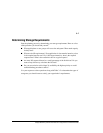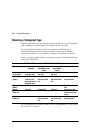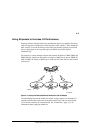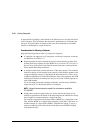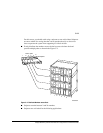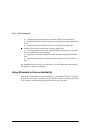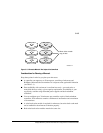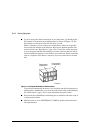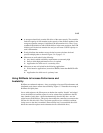
3–8 Creating Storagesets
Choosing a Storageset Type
Different applications may have different storage requirements, so you will probably
want to configure more than one kind of storageset in your subsystem.
All of the storagesets described in this book implement RAID technology.
Consequently, they all share one important feature: each storageset, whether it
contains two disk drives or ten, looks like one large, virtual disk drive to the host.
Table 3–2 compares different kinds of storagesets to help you determine which ones
satisfy your requirements.
For a comprehensive discussion of RAID, refer to The RAIDBOOK—A Source Book
for Disk Array Technology.
Table 3–2 A Comparison of Different Kinds of Storagesets
Storageset Type Relative
Availability
Request Rate
(Read/Write) I/O per
second
Transfer Rate (Read/
Write) MB per
second
Applications
Array of disk
drives (JBOD)
Equivalent to a
single disk drive
Identical to single
disk drive
Identical to single
disk drive
Stripeset
(RAID 0)
Proportionate to
number of disk
drives; worse than
single disk drive
Excellent if used
with large chunk
size
Excellent if used
with small chunk
size
High performance for
noncritical data
Mirrorset
(RAID1)
Excellent Good/Fair Good/Fair System drives; critical
files
RAIDset
(RAID 3/5)
Excellent Excellent/Fair Good/Poor High request rates,
read-intensive, data
lookup
Striped Mirrorset
(RAID 0+1)
Excellent Excellent if used
with large chunk
size
Excellent if used
with small chunk
size
Any critical response-
time application





